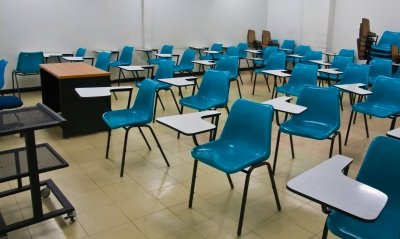 Covid19 has forced the cancellation of this years GCSE and A-Level exams. As a result of this schools are being asked to submit grades for their students with a number of people expressing concern over the fairness of the grades which will result. But were the exams ever fair?
Covid19 has forced the cancellation of this years GCSE and A-Level exams. As a result of this schools are being asked to submit grades for their students with a number of people expressing concern over the fairness of the grades which will result. But were the exams ever fair?
Public exams were introduced in the mid eighteen hundreds, over 150 years ago and I would suggest that they haven’t changed that much. They are now a foundational element of the world we live in. Your qualifications, or the grades you get in these qualifications largely determined by exams, dictate your progress and the options available to you as you progress through the education system. From secondary education to further education then onto university and eventually careers each influenced by the grades you achieve. To pass each exam a key skill is memorisation. To memorise key facts, to memorise approaches to using these facts and to memorise and practice techniques to manage exams. The issue is that in a world of technology, a world where most of us carry Google in our pockets complete with the worlds biggest collection of knowledge plus videos and animations to demonstrate how to use this knowledge, is it really critical that we memorise things?
For some student memorisation is easy as is exam technique and therefore the exam system is perfect for them. For others memorisation is more difficult and exams bring out exam stress. In terms of the end outcome both types of students may be capable of the same things, albeit one may need to quickly review Google for assistance. This seems to be biased in favour of those students who are better suited to exams which is unfair.
Lots has also been written about differing achievement rates in different types of schools, different social-economic backgrounds, etc. I am not going to expand on this here, only to say that most discussions finish with a lack of equity for students in differing circumstances being identified; that students access to learning and preparation for the all important exams isn’t fair.
Taking “fairness” a stage further, we would expect all students who answer a particular question in a particular way to achieve the same number of marks however, outside of fact-based questions, answers need to be marked by human examiners which introduces variability. Yes, there are standardisation/moderation processes to try reduce the probability of students receiving unfair outcomes but these only reduce the probability rather than eliminating it.
We also have the annual adjustment of marks boundaries to reduce unfairness where a particular years exam questions might be more or less difficult that the previous years. On one hand this is good as it seeks to reduce the probability of unfair outcomes, however the existence of this process, and of the standardisation/moderation processes mentioned above both acknowledge the fundamentally unfair nature of exams.
For 2019/20 there will be no exams and instead teachers who have worked with students throughout the year will be making professional judgements as to what students would have achieved. Schools will then be seeking to check that results across the school are fair, followed by the exam bodies to checking fairness across all schools. I am not sure how this will be any more or less fair than what we had before. It may be that the sudden nature of the introduction of this process may be unfair, but outside of this I am unsure that it will have introduced any greater variability than that which existed previously.
I think those asking about the fairness of the 2019/20 results are asking the wrong question. I suspect some may be invested in the exams machine, while some maybe so used to the exam system that they are scared of potential change and of the unknown. The big question I find myself with is, if we can issue final qualification grades in 2019/20 without the need for final exams, do we really need these standardised exams in 2020/21 and beyond?

